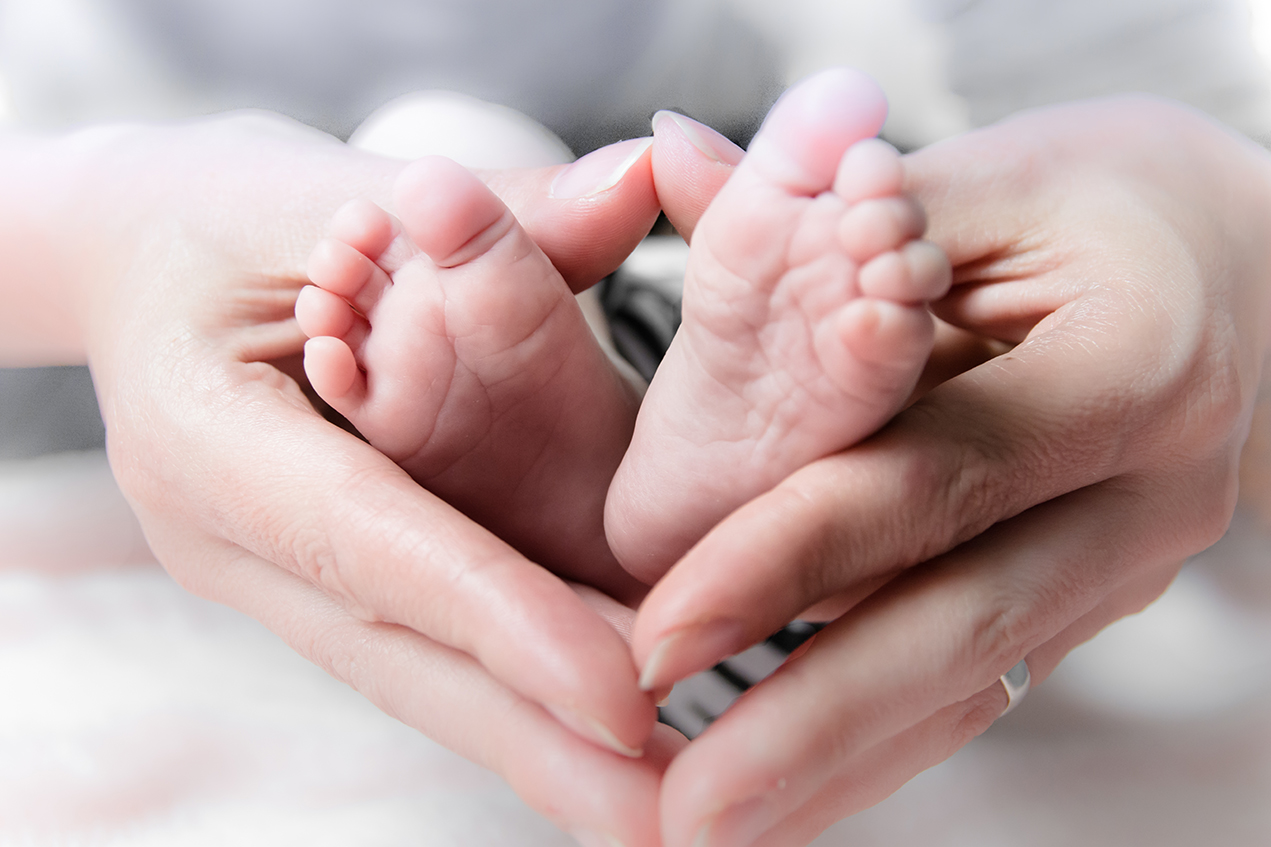With Keck Medicine of USC now accepting patients for all needed health care services, clinicians, administration and staff have worked extremely hard to minimize the risk of COVID-19 transmission. This ongoing series covers the changes that patients and visitors can expect as the pandemic continues.
This story focuses on the efforts made by leadership, physicians and staff at USC Verdugo Hills Hospital to address the prenatal and maternity needs of the surrounding community.
In response to the unique, in-person needs that arise during pregnancy and childbirth, USC Verdugo Hills Hospital’s Beginnings Family Birth Center made adjustments to the entire prenatal and maternity process for patients so they can continue to expect an exceptional level of care while minimizing their risk for COVID-19 infection.
“We’re offering a service that really doesn’t stop just because there’s a pandemic,” said Cecilia Pyzow, MBA, business development director for USC-VHH.
For those early in their pregnancy, prematernity tours offered by USC-VHH are now virtual. From the safety of their homes, patients can get a feel for the hospital’s private labor, delivery and postpartum rooms, along with the neonatal intensive care unit (NICU).
Classes covering topics such as breastfeeding and baby care basics, as well as support groups for new mothers, are available onsite again. As with other Keck Medicine facilities, anyone who enters will be subject to a temperature check, symptom and exposure screening and a mask requirement. The spacious classrooms have been rearranged to meet social distancing standards.
“We have large conference rooms where we space the chairs out so that couples, or individuals if they’re attending separately, are socially distancing based on CDC guidelines,” explained Susan Hawkes, director of Women and Family Services at USC-VHH.
If patients need extra guidance in the classes, the teacher will provide verbal tips and tools. In addition, a patient representative coordinator is available for lingering questions and can take phone calls between classes.
To protect patients and staff, birthing classes aren’t available yet because they usually require hands-on training. But Hawkes is hopeful that this precaution won’t be permanent.
“I’m certain that eventually we will get there, where we can have systems in place that people can have those kinds of opportunities,” she said.
For high-risk pregnancies, maternal-fetal medicine specialists are available as well.
“They have access to look at a fetal heart strip remotely so they can just log on and see how the baby is doing,” Hawkes explained. The hospital has also arranged private rooms for consultations and in-person monitoring when needed.
When it’s time for delivery, mothers in labor are tested for COVID-19 and are allowed one birthing support person present throughout the process. USC-VHH will provide this person with sleeping accommodations and meals to encourage them to stay on site, which removes their risk of being exposed to the virus outside of the hospital.
After the birth, babies who need extra medical care stay in the NICU, but parents can visit them in-person as long as they’re well. Parents who are unwell are given iPads so they can visit virtually, keeping their newborns safe.
As a result of these precautions, the hospital’s deliveries have increased 60% compared to the last few years, according to Hawkes. In July alone, the hospital oversaw 66 births — a new record since USC-VHH joined the Keck Medicine Family.
“This is a really safe place to get excellent medical care at a time when women feel really vulnerable,” said Patricia Sung, manager of infection prevention and control. “Our staff is prepared to keep themselves but also patients safe from infection.”
For Pyzow, the precautions the hospital has taken have proven well worth the effort in order to keep prenatal and maternity care as fully available as possible during the pandemic.
“When I see a new dad or a new mom in the elevator or in the hallway, just the joy on their faces from being able to continue with something that is so normal,” she said. “To feel like they’re extremely safe even though there might be turmoil going on in the rest of their life, this feels so normal. And it’s been really nice to see that.”
— Kate Faye


